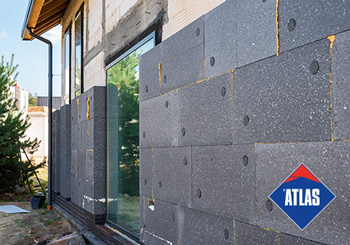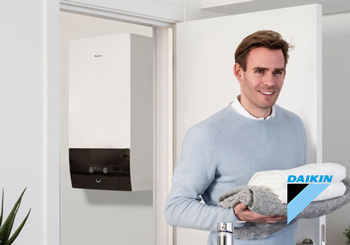GRANTS
Warm Homes:
Local Grant
What is ‘Warm Homes: Local Grant’?
The Warm Homes: Local Grant is a government-funded scheme delivered by Local Authorities across England. Designed to support the Warm Homes Plan, this initiative aims to improve energy efficiency in homes, helping households reduce their energy bills and cut down on carbon emissions.
The grant provides financial support for energy-saving home upgrades and low-carbon heating solutions to benefit low-income households living in poorly insulated, energy-inefficient homes. Available for properties using all fuel types, the scheme covers both on-gas (mains gas) and off-gas (electricity, oil, coal, or LPG) households.
Why is the Warm Homes: Local Grant Important?
The grant has two main objectives:
- Reducing Fuel Poverty: By 2030, the scheme aims to help low-income households achieve a minimum Energy Performance Certificate (EPC) rating of band C. Improving energy efficiency will significantly cut heating costs and provide long-term financial relief.
- Supporting Net Zero 2050 & Carbon Budgets: The UK is working towards Net Zero by 2050. This scheme plays a crucial role in meeting carbon reduction targets by encouraging energy-efficient home improvements and low-carbon heating installations.


How Much Funding is Available?
The funding is divided into two distinct categories, each with its own cost cap:
- Energy Performance Upgrades: A maximum of £15,000 is available to support improvements that enhance energy efficiency, such as insulation, double glazing, and other measures that reduce heat loss and overall energy consumption.
- Low Carbon Heating: Up to £15,000 can be allocated for the installation of eco-friendly heating systems, including heat pumps and other sustainable heating solutions that lower carbon emissions.
Property Eligibility
To qualify, properties must meet the following criteria:
- Have an initial Energy Performance Certificate (EPC) rating between band D and band G.
- Be an existing property – new buildings and self-built homes that have never been occupied are not eligible.
- Park homes can apply if they are a permanent residence, meet the EPC band D-G requirement, and are expected to remain in use for the full duration of the guarantee period for the installed upgrades.


Key Benefits of Home Insulation
A household must meet at least one of the following criteria:
- Location-Based Eligibility: Homes located in designated low-income postcodes (Income Deciles 1-2 on the Indices of Multiple Deprivation) qualify.
- Receipt of Means-Tested Benefits: If a household receives certain means-tested benefits or meets the ECO4 Flex criteria (Route 2).
- Income-Based Eligibility: Households with a gross annual income below £36,000 (or below the adjusted threshold based on housing costs) can apply.
Grants
How We Can Help
Who We Are
Founded in 2012, Infinity Energy Organisation (IEO) has built a reputation as one of the UK’s leading energy-based home improvement companies. Our mission is to make energy-efficient living accessible to all, helping homeowners save money on bills while reducing their carbon footprint.
Mission Net Zero – Our Impact
- Projects delivered under ECO & GBIS schemes.
- £437.8M+ saved in combined lifetime & annual energy bill savings.
- 28,605+ homes upgraded through ECO & GBIS schemes.
- 47,377+ installations were completed across the UK.
- Projects successfully delivered for Westminster Council & other Local Authorities.
- Projects successfully delivered under the Local Authority Decarbonation Scheme.
Here’s how we support councils in delivering energy efficiency projects.
Our Process
As an approved managing agent, we provide turnkey energy solutions, including:
-
- Lead Generation
- Pre-Qualification
- Survey by Retrofit Assessor
- Quotation
- Pre-Retrofit Coordination
- Install
- Post Retrofit Coordination
- Handover Packs
- Aftercare
Home Insulation
- Technical Survey, along with the Ventilation Strategy
- Approved Installers for the Atlas External Wall Insulation System (BBA Approved)
- Atlas External Wall Insulation System Distributor
- Competent Gas Engineers for Boiler Installations
- PAS 2030 Accredited Installer
- Quality Assurance
- 2 Years of Insurance-backed Guarantee for Heating and Loft Insulation
- 25 Years of Insurance-backed Guarantee for Solid Wall and Room in Roof Insulation
Renewables
- System Design Catered to Each Property
- Approved Installers for Fox ESS and Tesla Powerwall 3
- Approved Installers for Daikin Air Source Heat Pumps
- MCS Accredited
- 2 Years of Insurance-backed Guarantee
- Consumer Protection Through RECC
Why Choose Infinity Energy Organisation?
- Turnkey Solutions: We handle the entire process, eliminating management hassles.
- Expert Energy Advisors: Our specialists educate and guide customers through their options.
- Dedicated Customer Support: We provide ongoing assistance, from the initial application to aftercare.
- Industry Expertise: With over 132 years of combined experience and 16+ years in home upgrades, we are trusted by Local Authorities & homeowners alike.
Procurement Portals We're On
- Delta eSourcing
- LHC Procurement Group
- Proactis
- Fusion 21
- Westworks
- CHIC
Get Started Today
Contact us to check your eligibility and start your journey towards a warmer, more energy-efficient home.






